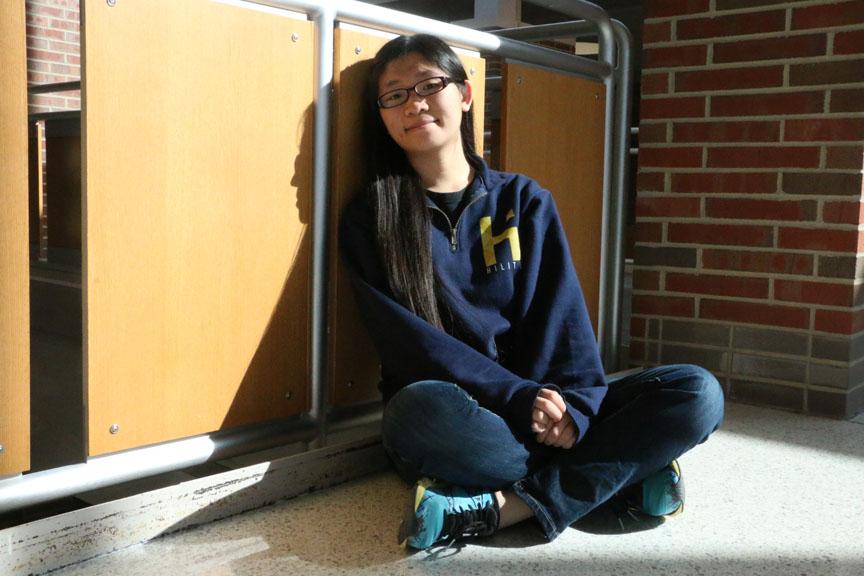At CHS, we are actually pretty blessed to be able to interact relatively well with special needs students. There’s Best Buddies, United Sound, Special Olympics, Unified Track, etc. We feel that we actually treat our special needs kids well, and we do, to an extent.
However, while we do have these programs, think about the following: how do we interact with special needs students outside of extracurricular activities? Do we walk with them? Do we talk to them? What kind of support do we give them? Or do we even do the opposite of what we should and completely look down on them?
Just because a student is disabled doesn’t mean they are any different from any of us. They are often just as smart if not smarter than we are. In fact, according to the Autism Research Institute, 10 percent of people with autism have characteristics of savants, people with extraordinary skills in areas such as memory, art, music and math. On the other hand, these characteristics are seen in fewer than one percent of the entire population of America—including the disabled. So just because those with disabilities aren’t considered as “normal” doesn’t mean we need to treat them with any less respect.
From what I’ve seen often in my life, special needs people tend to be misunderstood. In terms of any misbehavior, those with special needs are often innocent—they don’t usually have malicious intent in their actions. When they interact with us, they don’t always respond in ways that we normally consider as socially “acceptable” and often struggle to do so, and we need to learn to see beyond that and understand what they want to communicate to us.
I have sibling with special needs. He was actually diagnosed with autism around the time I was born, so I’ve lived with that knowledge my whole life. To be sure, the past 16 and three-quarters years have taught me a lot. One of the most important lessons I’ve learned is patience—from learning that it takes time for my brother and others just like him to learn lessons, and that I need to bear with him through that process.
Another lesson I’ve learned is tolerance—to be able to stand my brother’s shortcomings without overreacting to the consequences. That took a while to learn, but from those experiences, I’ve been able to tolerate not just special needs students like my brother, but also diversity in general to a greater extent. And you, reader, can further develop these and more too from any special needs student—not just him.
In any school, we, including adults, should support special needs students as well as our peers. April is Autism Awareness month, and there are many opportunities to get involved, such as participating in some of the extracurricular activities I mentioned and more. The sky the limit on your involvement. But don’t feel like you have to join a group to get involved. You can greet special needs students in the hallways or chat with them about how they’ve been. You can sit with them at lunch. You can invite them to go with you to fun events.
There’s one minimum that everyone can do—summed up in one word. That key word is the magical r-word known as respect. And everyone can participate in that by mutually showing it.
Categories:
‘Dis’ does not belong in disability. We can learn a lot from respecting special needs people.
March 19, 2015
0

































![AI in films like "The Brutalist" is convenient, but shouldn’t take priority [opinion]](https://hilite.org/wp-content/uploads/2025/02/catherine-cover-1200x471.jpg)









































![Review: “The Immortal Soul Salvage Yard:” A criminally underrated poetry collection [MUSE]](https://hilite.org/wp-content/uploads/2025/03/71cju6TvqmL._AC_UF10001000_QL80_.jpg)
![Review: "Dog Man" is Unapologetically Chaotic [MUSE]](https://hilite.org/wp-content/uploads/2025/03/dogman-1200x700.jpg)
![Review: "Ne Zha 2": The WeChat family reunion I didn’t know I needed [MUSE]](https://hilite.org/wp-content/uploads/2025/03/unnamed-4.png)
![Review in Print: Maripaz Villar brings a delightfully unique style to the world of WEBTOON [MUSE]](https://hilite.org/wp-content/uploads/2023/12/maripazcover-1200x960.jpg)
![Review: “The Sword of Kaigen” is a masterpiece [MUSE]](https://hilite.org/wp-content/uploads/2023/11/Screenshot-2023-11-26-201051.png)
![Review: Gateron Oil Kings, great linear switches, okay price [MUSE]](https://hilite.org/wp-content/uploads/2023/11/Screenshot-2023-11-26-200553.png)
![Review: “A Haunting in Venice” is a significant improvement from other Agatha Christie adaptations [MUSE]](https://hilite.org/wp-content/uploads/2023/11/e7ee2938a6d422669771bce6d8088521.jpg)
![Review: A Thanksgiving story from elementary school, still just as interesting [MUSE]](https://hilite.org/wp-content/uploads/2023/11/Screenshot-2023-11-26-195514-987x1200.png)
![Review: "When I Fly Towards You", cute, uplifting youth drama [MUSE]](https://hilite.org/wp-content/uploads/2023/09/When-I-Fly-Towards-You-Chinese-drama.png)
![Postcards from Muse: Hawaii Travel Diary [MUSE]](https://hilite.org/wp-content/uploads/2023/09/My-project-1-1200x1200.jpg)
![Review: "Ladybug & Cat Noir: The Movie," departure from original show [MUSE]](https://hilite.org/wp-content/uploads/2023/09/Ladybug__Cat_Noir_-_The_Movie_poster.jpg)
![Review in Print: "Hidden Love" is the cute, uplifting drama everyone needs [MUSE]](https://hilite.org/wp-content/uploads/2023/09/hiddenlovecover-e1693597208225-1030x1200.png)
![Review in Print: "Heartstopper" is the heartwarming queer romance we all need [MUSE]](https://hilite.org/wp-content/uploads/2023/08/museheartstoppercover-1200x654.png)




